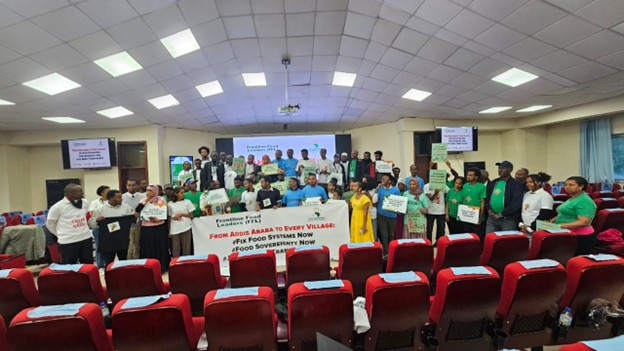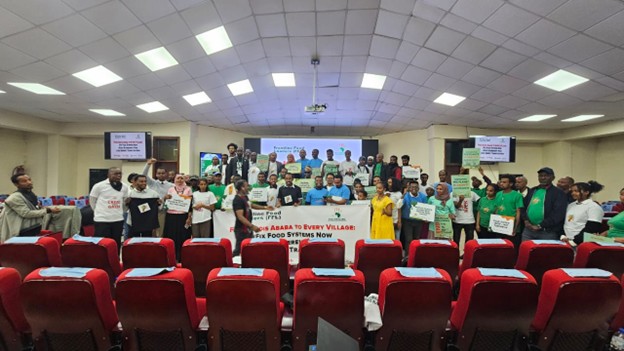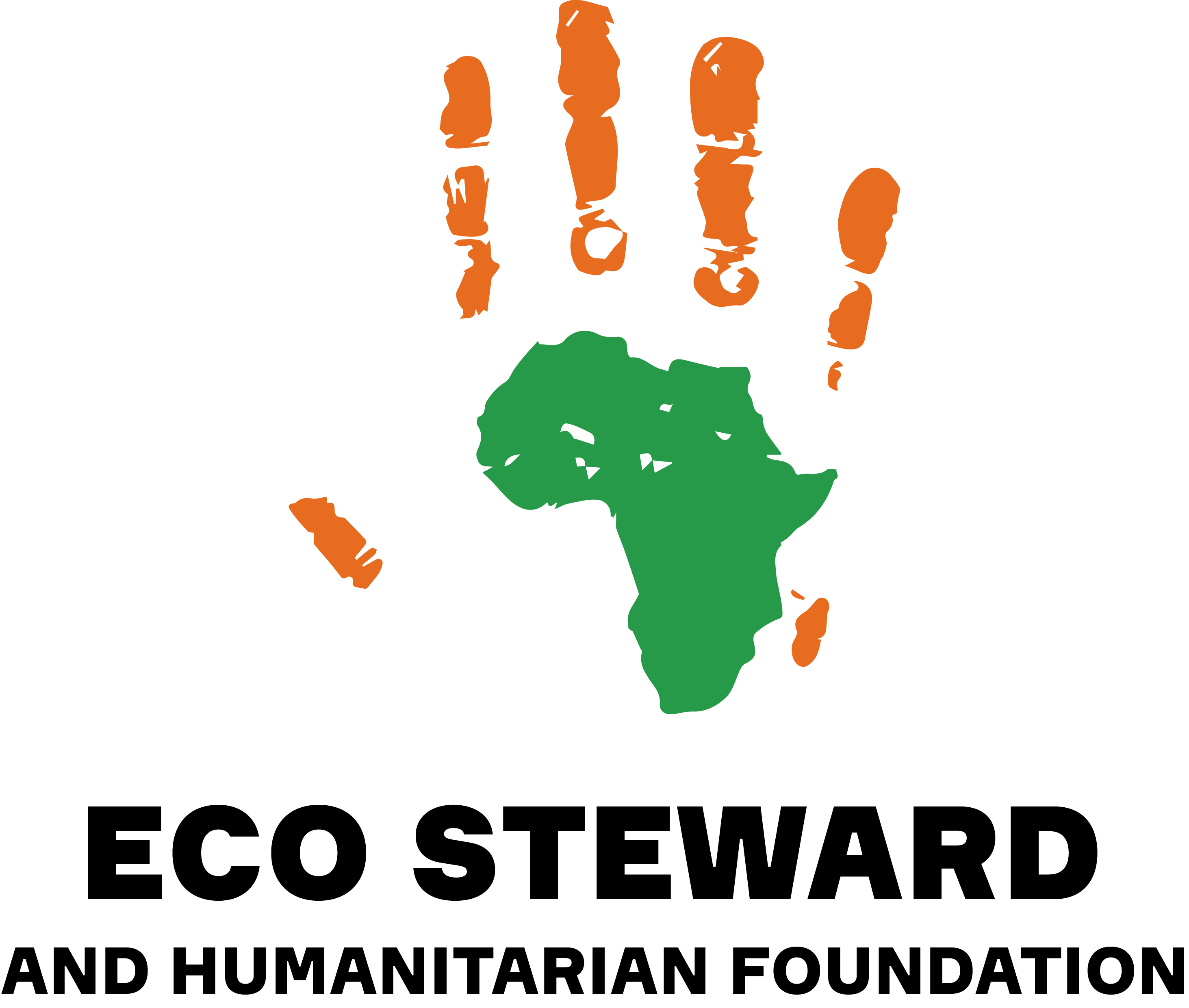
Agroecology is more than farming it’s about justice, dignity, and sovereignty
Addis Ababa, Ethiopia At Kotebe University of Education / 10th September 2025, youth voices rang clear and strong as organizations headed by Ecosteward Foundation and Humanitarian Foundation (EHF) with support from the Global Alliance for the Future of Food, in partnership with Frontline Food Leaders (FFL), the Alliance for Food Sovereignty in Africa (AFSA), Jeunes Volontaires pour I’Environnement (JVE), GreenFaith Africa, GreenFaith Nigeria, HBCU GreenFund, and Community Action for Food Security came together to mobilize young people around agroecology as a transformative solution to Africa’s climate and food crises.
Agroecology rooted in Africa’s indigenous knowledge, biodiversity, and cultural heritage is rapidly emerging as the continent’s frontline strategy for sustainable food systems. For young people, it offers more than a farming approach: it represents a pathway to food sovereignty, climate resilience, and economic empowerment.
Why Youth and Agroecology Matter
Africa is the world’s youngest continent, with over 60% of its population under 25 years old. At the same time, the continent is disproportionately vulnerable to the impacts of climate change, from droughts and desertification in the Sahel to floods and cyclones in East and Southern Africa.
By advancing agroecology, African youth are stepping into leadership at a time when traditional industrial agriculture heavily dependent on fossil fuels, chemical inputs, and export-driven models is proving unsustainable. Agroecology, by contrast, strengthens:
- Food sovereignty: Empowering communities to produce diverse, nutritious food locally.
- Land restoration: Healing degraded soils and enhancing biodiversity through sustainable practices.
- Resilience to climate shocks: Building systems that can withstand droughts, floods, and pests.
- Energy justice: Reducing dependence on fossil-fuel-driven agriculture and promoting renewable solutions.
Youth at the Heart of Change

The gathering at Kotebe University highlighted how young people are not only beneficiaries of agroecology but drivers of innovation and advocacy. Through training, research, and community mobilization, youth networks are reclaiming ancestral knowledge while integrating modern ecological science.
“Agroecology is more than farming it’s about justice, dignity, and sovereignty,” Lucky Abeng Frontline Food Leader at the event affirmed. “We are building a future where Africa can feed itself without destroying its lands or relying on exploitative systems.”
Global Implications
This youth-led momentum aligns with global climate goals. Recent UN Food and Agriculture Organization (FAO) reports emphasize agroecology as a critical tool to meet the Sustainable Development Goals (SDGs), particularly Zero Hunger (SDG 2) and Climate Action (SDG 13). Moreover, agroecology addresses the intersections of food, energy, and climate justice, which are increasingly recognized as inseparable in achieving a just transition.
Looking Forward
As the Africa Climate Summit 2 (ACS2) concluded in Addis Ababa with multi-billion-dollar commitments for African-led climate solutions, youth coalitions like those represented at Kotebe University are insisting that resources flow to grassroots initiatives. For them, agroecology is not just a strategy it is the heartbeat of Africa’s climate resilience.
www.ecostewardafrica.org
